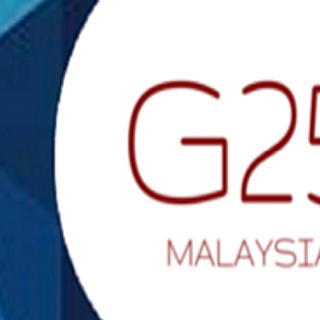Appointments to SUHAKAM, EIA Reports by the Department of Environment
- G25 Secretariat
- Jul 12, 2022
- 3 min read
G25 expresses its support and solidarity with other civil society organisations on their public statements criticising and expressing concern over the recent appointments of commissioners to the Human Rights Commission of Malaysia (SUHAKAM). G25 also supports the CSOs’ suggestions that the reports of Environmental Impact Assessment (EIA) by the Department of Environment (DOE) be made available for public information, scrutiny and feedback.
The statements by the CSOs on both issues are supported by G25 as they reflect G25 views that these are relevant for Malaysia to become a progressive country. They should not be erroneously dismissed as the liberal policies of the West. On the contrary, it is axiomatic that they are the universal values that we should ourselves adopt because they are fundamental for social justice, the happiness of the citizens, sustaining our well-being and security, as well as sustaining our future growth and development, both materially and spiritually. We will be demonstrating to our young generation that we care for their future as these values are now viewed as essential for achieving sustainable growth.
Malaysia has adopted the United Nations agenda for Sustainable Development Goals (SDGs). These seventeen goals are founded on three dimensions or pillars of sustainable human development – economic growth, social inclusion and environmental protection, and they are now being seriously viewed and conscientiously implemented by all relevant agencies. Needless to say, human rights feature significantly in the realisation of these goals. SDGs are now considered as essential for companies to be aware that they can only grow and prosper to become more commercially successful if the society and the environment around them are in good shape.
1
The well-being of the society will be threatened if human rights, especially on race, religion and culture (which are especially relevant in Malaysia), are not respected but are instead trampled under the policies and laws of the country. These are sometimes exploited by the politics of the country which in turn hinder meaningful reforms that are needed. The recent appointments to the SUHAKAM Commission give the public the impression that the government intends to introduce political surveillance on the Commission and its professional staff in their work towards promoting and defending the human rights of Malaysians. Be it known that SUHAKAM is established to be an independent body, carrying out its functions of promoting and protecting human rights in Malaysia without fear or favour. Therefore, we agree with other CSOs that no politician or politically connected person should sit on the SUHAKAM Commission, so that its staff can do their work without being constrained by political or other inappropriate considerations.
In this regard we are deeply perturbed by the statement of the new SUHAKAM chairperson, Prof. Rahmat Mohamad, a few days ago after his appointment that he would ensure human rights in Malaysia would be according to the ‘local mould and not influenced by western culture’ or in his own words as reported ‘acuan tempatan dan tidak lagi berpaksikan budaya Barat atau “western centric”’. With respect, we disagree with such a statement and we wish to state here that for human rights there is no such thing as ‘acuan tempatan’. SUHAKAM is mandated by Parliament via the Human Rights Commission of Malaysia Act 1999 to promote and to protect human rights in Malaysia based on the fundamental liberties as enshrined in the Federal Constitution and the Universal Declaration of Human Rights (to the extent that it is not inconsistent with the Federal Constitution). We reiterate that human rights are based on universal values.
For The UN Sustainable Development Goals to be successfully implemented, transparency is essential on the part of governments and corporations. Thus, on the EIA reports, we believe they should be made public and not classified under OSA. It is important that the public can study them, and if necessary, the interested parties can carry out their own independent reviews to verify the accuracy of the EIA reports. Transparency is crucial because some projects have attracted public criticisms on the environmental damage to coastal and riverine areas, forest reserves, mangrove swamps, water catchment areas, hill slopes, and protected wild fauna and flora including wildlife sanctuaries. Where the projects involve political and business individuals with vested interests and their projects encroach into the protected areas, the public wants to know whether the EIA reports have made a thorough objective analysis of the environmental risks. The public is not against development but the government must be transparent for the sake of good governance. Development must not be at the expense of the environment.
G25, therefore, urges the government to make the EIA reports public so that outside experts and professionals can vouch for their professionalism and credibility.





Comments